Los Angeles is at a crossroads. Crime, homelessness, and economic uncertainty—compounded
by devastating wildfires—have left many wondering: Are LA's best days behind us?
The answer is no. History proves that cities in crisis can reinvent themselves. In
the 1990s, New York City faced rampant crime, urban decay, and fiscal collapse. Yet,
against the odds, it staged one of the most dramatic turnarounds in modern history—becoming
a global model for urban renewal.
Join us for an afternoon of insight, strategy, and action. Learn from the architects
of NYC's transformation, leading criminologists, policy experts, and California leaders
who are shaping the future of our state. Through expert discussions and exclusive
clips from the award-winning documentary Gotham: The Fall and Rise of New York, we'll explore how Los Angeles can reclaim its potential and forge its own path to
renewal.
The future of LA is not written—let's shape it together.
Ben Allen
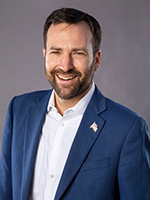 Senator Ben Allen was elected in 2014 and now represents the 24th District covering
the Westside, Hollywood, South Bay, and Santa Monica Mountains communities of LA County.
Senator Allen chairs the Senate Budget Subcommittee #2 (Resources, Environmental Protection,
and Energy) and serves as vice-chair of the Legislature’s Joint Committee on the Arts,
in addition to serving on standing committees focused on elections, energy and utilities,
judiciary, and natural resources and water. An attorney and former school board member,
Senator Allen has authored crucial legislation in the areas of economic development,
environmental protection, climate change, green transit, educational equity, government
transparency, and electoral reform. This included authoring an expansive push to move
California away from unsustainable single-use packaging, and a state general obligation
bond measure to address the effects of climate change. He is a son of teachers and
holds degrees from Harvard, Cambridge, and UC Berkeley. He and his wife Melanie have
two children.
Senator Ben Allen was elected in 2014 and now represents the 24th District covering
the Westside, Hollywood, South Bay, and Santa Monica Mountains communities of LA County.
Senator Allen chairs the Senate Budget Subcommittee #2 (Resources, Environmental Protection,
and Energy) and serves as vice-chair of the Legislature’s Joint Committee on the Arts,
in addition to serving on standing committees focused on elections, energy and utilities,
judiciary, and natural resources and water. An attorney and former school board member,
Senator Allen has authored crucial legislation in the areas of economic development,
environmental protection, climate change, green transit, educational equity, government
transparency, and electoral reform. This included authoring an expansive push to move
California away from unsustainable single-use packaging, and a state general obligation
bond measure to address the effects of climate change. He is a son of teachers and
holds degrees from Harvard, Cambridge, and UC Berkeley. He and his wife Melanie have
two children.
Dan Biederman
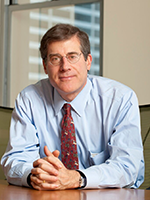 Dan Biederman began his career by turning around dangerous and neglected areas of
Midtown Manhattan. During the 1980s, he created Bryant Park Corporation, 34th Street
Partnership, and Grand Central Partnership, and currently serves as the president
of the first two of those downtown managers. His private consulting firm, Biederman Redevelopment Ventures, grew out of this work,
and has since served as a consultant and operator of other downtown redevelopment/management
efforts in Los Angeles, Chicago, Dallas, Houston, Atlanta, Miami, Pittsburgh, Boston,
Baltimore, and Newark, among many other cities.
Dan Biederman began his career by turning around dangerous and neglected areas of
Midtown Manhattan. During the 1980s, he created Bryant Park Corporation, 34th Street
Partnership, and Grand Central Partnership, and currently serves as the president
of the first two of those downtown managers. His private consulting firm, Biederman Redevelopment Ventures, grew out of this work,
and has since served as a consultant and operator of other downtown redevelopment/management
efforts in Los Angeles, Chicago, Dallas, Houston, Atlanta, Miami, Pittsburgh, Boston,
Baltimore, and Newark, among many other cities.
Bryant Park Corporation, founded in 1980 by Biederman with the assistance of the Rockefeller
Brothers Fund, is one of the largest efforts in the nation to apply private management
backed by private funding to a public park.
34th Street Partnership, which Biederman founded in 1989, covers a critical area with
over 33 million square feet of commercial space, including Pennsylvania Station, Madison
Square Garden, the Herald Square shopping district, and the Empire State Building.
In January of 1992, the Partnership opened with a $6 million annual program of security,
sanitation, social services, tourist information, public events, and debt service
on a major capital improvement bond of $25 million for improvements to the district’s
streets, sidewalks, and plazas. The district has radically widened its programs and
resources since then. Crime has been reduced by 90%, the streets are free of litter,
and dozens of retailers have been helped to upgrade their facades and merchandising.
The Partnership has received many awards for its pioneering work, including the 2003 Society
for Environmental Graphic Design Award for its Self-Illuminated Street Sign, the NYC
Department of Small Business Services 2003 Neighborhood Development Award, and the
Urban Land Institute’s 2005 Award for Excellence for its line of Custom Designed Street
Furniture.
Biederman has written, lectured, and taught extensively in the field of urban management.
In December of 1995, he served on a twelve member advisory panel convened in Oklahoma
City by the Urban Land Institute to explore strategies for the economic recovery of
the downtown area in the aftermath of the April 19, 1995 bombing of the Alfred P.
Murrah Federal Building. His publications include articles in Urban Land and the Harvard
Business Review.
William Bratton
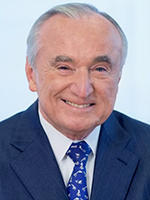 William J. Bratton is one of the world's most respected and trusted experts on risk
and security issues.
William J. Bratton is one of the world's most respected and trusted experts on risk
and security issues.
During a 46-year career in law enforcement, he instituted progressive change while
leading six police departments, including seven years as chief of the Los Angeles
Police Department and two nonconsecutive terms as the police commissioner of the City
of New York. He is the only person ever to lead the police agencies of America’s two
largest cities.
As executive chairman of risk advisory at Teneo, Comissioner Bratton advises clients
on risk identification, prevention, and response. Teneo addresses five key areas:
cyber risk management, counterterrorism, crisis anticipation, critical infrastructure,
and health crisis advisory services.
Prior to assuming his role at Teneo, Commissioner Bratton was the 42nd police commissioner
of the City of New York from January 2014 to September 2016. It was the second time
he had held the post. During that time, he oversaw 32 months of declining crime, including
historic lows for murders and robberies. Commissioner Bratton spearheaded a major
technological overhaul, the Mobile Digital Initiative, which gave a smartphone with
custom-designed apps to every officer and put a tablet in every patrol car. Commissioner
Bratton also implemented major reforms to the NYPD’s counterterrorism program by developing
two new units—the Critical Response Command (CRC) and the Strategic Response Group
(SRG)—which now provide the city with more than 1,000 highly trained and properly
equipped officers who are dedicated to counterterrorism, large-scale mobilizations,
site security, and rapid deployment citywide.
In the 1990s, Commissioner Bratton established an international reputation for re-engineering
police departments and fighting crime. As chief of the New York City Transit Police,
Boston police commissioner, and in his first term as New York City police commissioner,
he revitalized morale and cut crime in all three posts, achieving the largest crime
declines in New York City’s history. As Los Angeles police chief from 2002 to 2009,
in a city known for its entrenched gang culture and youth violence, he brought crime
to historically low levels, greatly improved race relations, and reached out to young
people with a range of innovative police programs.
Commisioner Bratton also currently serves as the chair for the Secretary of Homeland
Security’s Advisory Council.
Kevin Faulconer
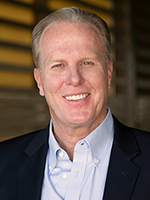 Kevin Faulconer was SPP's Visiting Professor for Community Leadership & Government
Innovation for 2021. He came to this position after serving as Mayor of San Diego
for two terms. Under his leadership, the city became known for taking creative, cross-sector
approaches to a variety of public policy challenges. Recognized nationally for its
use of technology to simplify government processes, the City has earned awards ranging
from its naming as a top "Digital City" by the Center for Digital Government to its
top ranking as the American City most "Equip to Innovate" by Governing Institute to
its "Silver Certification" as one of nation's few "What Works Cities" in the category
of data transparency.
Kevin Faulconer was SPP's Visiting Professor for Community Leadership & Government
Innovation for 2021. He came to this position after serving as Mayor of San Diego
for two terms. Under his leadership, the city became known for taking creative, cross-sector
approaches to a variety of public policy challenges. Recognized nationally for its
use of technology to simplify government processes, the City has earned awards ranging
from its naming as a top "Digital City" by the Center for Digital Government to its
top ranking as the American City most "Equip to Innovate" by Governing Institute to
its "Silver Certification" as one of nation's few "What Works Cities" in the category
of data transparency.
Rafael Mangual
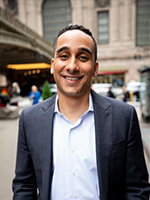 Rafael Mangual is the Nick Ohnell Fellow and head of research for the Policing and
Public Safety Initiative at the Manhattan Institute for Policy Research, and a contributing
editor of the Institute’s flagship publication, City Journal. His first book, Criminal
(In)Justice: What the push for decarceration and depolicing gets wrong and who it
hurts most, was published in July of 2022 by Center Street, an imprint of Hachette
Book Group. In 2020, Mangual was appointed to serve a four-year term on the New York
State Advisory Committee of the U.S. Commission on Civil Rights, and in 2022, he was
elected to the Council on Criminal Justice.
Rafael Mangual is the Nick Ohnell Fellow and head of research for the Policing and
Public Safety Initiative at the Manhattan Institute for Policy Research, and a contributing
editor of the Institute’s flagship publication, City Journal. His first book, Criminal
(In)Justice: What the push for decarceration and depolicing gets wrong and who it
hurts most, was published in July of 2022 by Center Street, an imprint of Hachette
Book Group. In 2020, Mangual was appointed to serve a four-year term on the New York
State Advisory Committee of the U.S. Commission on Civil Rights, and in 2022, he was
elected to the Council on Criminal Justice.
Mangual regularly appears on both national and local television and radio to comment
on issues of crime, justice, and safety. His writing on these issues has been featured
in a wide array of publications, including The New York Times, The Wall Street Journal,
and The Washington Post.
Mangual's expertise is regularly sought by policymaking bodies, including committees
of both the U.S. House of Representatives and U.S. Senate, before which he has testified
on multiple occasions.
James Prieger
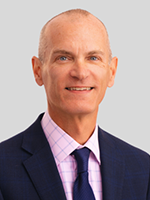 James E. Prieger is an economist specializing in regulatory economics, industrial
organization, and applied econometrics. Previously, he was an assistant professor
of economics at the University of California, Davis. He received his bachelor of arts
degree from Yale University and his PhD from the University of California, Berkeley.
James E. Prieger is an economist specializing in regulatory economics, industrial
organization, and applied econometrics. Previously, he was an assistant professor
of economics at the University of California, Davis. He received his bachelor of arts
degree from Yale University and his PhD from the University of California, Berkeley.
Prieger has written for scholarly journals on a diverse array of policy topics such
as the impact of telecommunications regulation on innovation; broadband deployment
and the digital divide; the impact of the broadband provisions of ARRA (the 2009 stimulus
bill); whether cell phone use causes traffic accidents; the impact of the Americans
with Disabilities Act on retail firms; applications barriers to entry in network markets;
entrepreneurship, R&D, and economic growth; the determinants of civic engagement;
minority entrepreneurship; and tobacco taxes and illicit markets.
Prieger currently serves as a Senior Fellow for the Reason Foundation and participates
as an academic advisory board member for The Free State Foundation. Prieger sits on
the editorial boards of Applied Economics Quarterly and the International Journal
of Business Environment, and his own research has been published in Review of Economics
and Statistics, Economic Inquiry, Journal of Applied Econometrics, Journal of Regulatory
Economics, and elsewhere. Prieger spent a year in 2008-2009 as Senior Economist with
the Federal Communications Commission, advising on broadband and telecom merger policy.
He has consulted for major telecommunications and other companies on regulatory issues
and presented at panels convened by the FCC.
Matthew Taylor
 Matthew Taylor is an American artist and technologist who works in film, sculpture,
and photography.
Matthew Taylor is an American artist and technologist who works in film, sculpture,
and photography.
As a filmmaker, Taylor has filmed all over the world in 25 countries including Argentina,
Guatemala, Poland, Italy, France, Chile, Germany, and Albania. He has conducted interviews
with a range of talent including former presidents, leading CEOs, world leaders, groundbreaking
artists, best-selling authors, astronauts, and creative thinkers. To date, he has
completed more than 150 short films, fashion works, ballet and dance pieces and directed
seven feature documentaries and two short films.
In 2015, Taylor wrote and directed Los Abandonados, a Spanish-language feature documentary
about the assassination of Alberto Nisman in Argentina. The film aided in the derailment
of Kristina Kirchner’s crony government.
In 2020, Taylor released Marcel Duchamp: The Art of The Possible, a feature length
documentary on the life and work of Marcel Duchamp, exploring the critical underpinnings
of art in the 20th and 21st centuries.
Last year, Taylor directed a short film entitled Invisible Hand which explores the
nature of memory and transference of other’s memories, and the physiological toll
trauma exerts on one’s ability to recall events.
Taylor possesses a filmmaking skillset that ranges across every aspect of film production
from director of photography to editor. He enjoys being “hands on” in all production
projects and will pick up the camera himself to get certain shots.
Michelle Taylor
 Michelle Taylor is the co-founder of Electrolift Creative, a creative boutique that
produces documentaries, short films, and other creative content.
Michelle Taylor is the co-founder of Electrolift Creative, a creative boutique that
produces documentaries, short films, and other creative content.
Taylor got her start in the film industry in Washington, D.C. when she joined a growing
nonprofit and managed the marketing and distribution of feature-length films. In 2008,
Taylor joined a national consulting firm as the executive vice president where she
worked with dozens of clients to help them attain revenue goals, implement strategic
plans, increase visibility, build coalitions, and improve messaging.
Turning her attention to film, Taylor produced several short films, commercials, and
music videos. Her first feature documentary was Los Abandonados, a Spanish language
investigative film that uncovered the truth behind Alberto Nisman’s death in Argentina.
In 2020, Taylor produced the award-winning documentary, Marcel Duchamp: Art of the
Possible. She oversaw filming in four countries, seven states and interviews with
twenty-nine artists and scholars. To date, this film has screened in over thirty-five
international film festivals, was co-produced by Arte in France and Germany, and screened
on SkyTV in the United Kingdom and on public television in ten countries, including
Poland, Japan, Taiwan, and Brazil.
Taylor is also the producer of the short drama, Invisible Hand, which was released
in 2021 and has screened in over twenty film festivals. She produced the film, Gotham:
The Fall and Rise of New York as well as the short film series, This is New York.
Looking ahead, Taylor is working on pre-production of a narrative comedy as well as
the mockumentary, This is Arcadia Sky.
Chris Thornberg
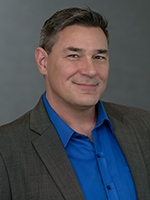 Christopher Thornberg, PhD has been called many things throughout his career as an
economist – “Dr. Doom,” a contrarian, even an optimist – but his favorite thing to
be called is always: correct. A renowned economist and public speaker with deep expertise
in economic and revenue forecasting, regional economics, economic policy, and labor
and real estate markets, Dr. Thornberg has consulted globally for private industry,
cities, counties, and public agencies. As a speaker, he has appeared in front of hundreds
of business, government, and nonprofit audiences.
Christopher Thornberg, PhD has been called many things throughout his career as an
economist – “Dr. Doom,” a contrarian, even an optimist – but his favorite thing to
be called is always: correct. A renowned economist and public speaker with deep expertise
in economic and revenue forecasting, regional economics, economic policy, and labor
and real estate markets, Dr. Thornberg has consulted globally for private industry,
cities, counties, and public agencies. As a speaker, he has appeared in front of hundreds
of business, government, and nonprofit audiences.
Dr. Thornberg founded Beacon Economics LLC in 2006 and under his leadership the firm
has become one of the most respected research organizations in California serving
public and private sector clients across the United States. From 2015-2023, Dr. Thornberg
was also director of the UC Riverside School of Business Center for Economic Forecasting
and Development and an adjunct professor at the school.
An expert in economic and revenue forecasting, regional economics, economic policy,
and labor and real estate markets, Dr. Thornberg has consulted for private industry,
cities, counties, and public agencies in Los Angeles, the San Francisco Bay Area,
New York, Seattle, San Diego, the Inland Empire, Las Vegas, Washington State, Orange
County, Sacramento, Arizona, and other geographies across the nation. He has also
worked on Wall Street, advising hedge fund manager Paulson & Co. about macroeconomic
issues.
Recent notable projects include policy analyses for the International Franchise Association;
housing and rent control studies for the California Apartment Association; research
supporting the strategic allocation of American Rescue Plan Act funds for the County
of San Joaquin; an analysis and forecast of the socioeconomic factors that affect
traffic growth and demand along a major interstate in Southern California; research
on affordable housing in Los Angeles for a major law firm; quarterly regional economic
outlooks for the East Bay Economic Development Alliance; a recession recovery plan
for the City and County of San Francisco; an annual economic assessment of LA’s city
council districts for the Los Angeles Area Chamber of Commerce; an economic and revenue
forecast for the City of San Luis Obispo; an analysis of the local technology industry
for the Santa Cruz County Workforce Development Board; and an economic impact study
for the 2024 Los Angeles Olympic Games Committee.
Dr. Thornberg became nationally known for forecasting the subprime mortgage market
crash that began in 2007 and was one of the few economists on record to predict the
global economic recession that followed. During the Covid-19 pandemic, he stood in
opposition to the panic over a depression that never happened, and he consistently
urges his audiences to beware of narratives that diverge from the reality of data.
As a public speaker, Dr. Thornberg is well known for his ability to capture and hold
audiences. He has presented to hundreds of leading business, government, and nonprofit
organizations across the globe including Chevron, The New Yorker, Colliers International,
Western Alliance Bank, the California Chamber of Commerce, City National Bank, the
National Confectioner’s Association, the Washington State Association of Counties,
the California State Association of Counties, State Farm Insurance, the City of Los
Angeles, the California and Nevada Credit Union League, the Mechanical Contractors
Association of America, and the National Steel and Shipbuilding Company, among many
others. He has testified before the U.S. Congress House Committee on Financial Services
on municipal debt issues, before the California State Assembly Committee on Revenue
and Taxation regarding rule changes related to Proposition 13, and before the Los
Angeles City Council about proposed changes to local minimum wage laws.
Dr. Thornberg is a contributor to consensus economic forecasts published by the Wall Street Journal, Reuters, the National Association of Business Economists, and the Seidman Research
Institute at Arizona State University. He also serves as a board member of the BizFed
Institute, one of Southern California’s most prominent think tanks focused on business
and industry issues. In 2024, he joined the board of directors of the Statewide California
Coalition (dba New California Coalition) and the Advisory Board of the California
Chamber of Commerce. He served on the board of directors of the Los Angeles Area Chamber
of Commerce from 2012-2023. He is also an executive member of the Central City Association
(Los Angeles) and a member of the California Association for Local Economic Development.
Prior to launching Beacon Economics, Dr. Thornberg was a senior economist with UCLA’s
Anderson Forecast. He previously taught in the MBA program at UCLA’s Anderson School,
in the Rady School of Business at UC San Diego, and at Thammasat University in Bangkok,
Thailand. He has also held a faculty position in the economics department at Clemson
University.
A well-known media commentator, Dr. Thornberg has appeared on all the major networks,
CNN, CNBC, NPR, and is regularly quoted in major national newspapers and online publications
including the Wall Street Journal, New York Times, USA Today, Politico, and Los Angeles Times.
Originally from upstate New York, Dr. Thornberg holds a PhD in business economics
from The Anderson School at UCLA, and a bachelor's degree in business administration
from the State University of New York at Buffalo.

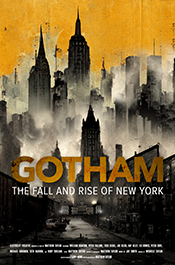 Watch the Gotham movie trailer
Watch the Gotham movie trailer Senator Ben Allen was elected in 2014 and now represents the 24th District covering
the Westside, Hollywood, South Bay, and Santa Monica Mountains communities of LA County.
Senator Allen chairs the Senate Budget Subcommittee #2 (Resources, Environmental Protection,
and Energy) and serves as vice-chair of the Legislature’s Joint Committee on the Arts,
in addition to serving on standing committees focused on elections, energy and utilities,
judiciary, and natural resources and water. An attorney and former school board member,
Senator Allen has authored crucial legislation in the areas of economic development,
environmental protection, climate change, green transit, educational equity, government
transparency, and electoral reform. This included authoring an expansive push to move
California away from unsustainable single-use packaging, and a state general obligation
bond measure to address the effects of climate change. He is a son of teachers and
holds degrees from Harvard, Cambridge, and UC Berkeley. He and his wife Melanie have
two children.
Senator Ben Allen was elected in 2014 and now represents the 24th District covering
the Westside, Hollywood, South Bay, and Santa Monica Mountains communities of LA County.
Senator Allen chairs the Senate Budget Subcommittee #2 (Resources, Environmental Protection,
and Energy) and serves as vice-chair of the Legislature’s Joint Committee on the Arts,
in addition to serving on standing committees focused on elections, energy and utilities,
judiciary, and natural resources and water. An attorney and former school board member,
Senator Allen has authored crucial legislation in the areas of economic development,
environmental protection, climate change, green transit, educational equity, government
transparency, and electoral reform. This included authoring an expansive push to move
California away from unsustainable single-use packaging, and a state general obligation
bond measure to address the effects of climate change. He is a son of teachers and
holds degrees from Harvard, Cambridge, and UC Berkeley. He and his wife Melanie have
two children. Dan Biederman began his career by turning around dangerous and neglected areas of
Midtown Manhattan. During the 1980s, he created Bryant Park Corporation, 34th Street
Partnership, and Grand Central Partnership, and currently serves as the president
of the first two of those downtown managers.
Dan Biederman began his career by turning around dangerous and neglected areas of
Midtown Manhattan. During the 1980s, he created Bryant Park Corporation, 34th Street
Partnership, and Grand Central Partnership, and currently serves as the president
of the first two of those downtown managers.  William J. Bratton is one of the world's most respected and trusted experts on risk
and security issues.
William J. Bratton is one of the world's most respected and trusted experts on risk
and security issues.  Kevin Faulconer was SPP's Visiting Professor for Community Leadership & Government
Innovation for 2021. He came to this position after serving as Mayor of San Diego
for two terms. Under his leadership, the city became known for taking creative, cross-sector
approaches to a variety of public policy challenges. Recognized nationally for its
use of technology to simplify government processes, the City has earned awards ranging
from its naming as a top "Digital City" by the Center for Digital Government to its
top ranking as the American City most "Equip to Innovate" by Governing Institute to
its "Silver Certification" as one of nation's few "What Works Cities" in the category
of data transparency.
Kevin Faulconer was SPP's Visiting Professor for Community Leadership & Government
Innovation for 2021. He came to this position after serving as Mayor of San Diego
for two terms. Under his leadership, the city became known for taking creative, cross-sector
approaches to a variety of public policy challenges. Recognized nationally for its
use of technology to simplify government processes, the City has earned awards ranging
from its naming as a top "Digital City" by the Center for Digital Government to its
top ranking as the American City most "Equip to Innovate" by Governing Institute to
its "Silver Certification" as one of nation's few "What Works Cities" in the category
of data transparency.
 James E. Prieger is an economist specializing in regulatory economics, industrial
organization, and applied econometrics. Previously, he was an assistant professor
of economics at the University of California, Davis. He received his bachelor of arts
degree from Yale University and his PhD from the University of California, Berkeley.
James E. Prieger is an economist specializing in regulatory economics, industrial
organization, and applied econometrics. Previously, he was an assistant professor
of economics at the University of California, Davis. He received his bachelor of arts
degree from Yale University and his PhD from the University of California, Berkeley.

 Christopher Thornberg, PhD has been called many things throughout his career as an
economist – “Dr. Doom,” a contrarian, even an optimist – but his favorite thing to
be called is always: correct. A renowned economist and public speaker with deep expertise
in economic and revenue forecasting, regional economics, economic policy, and labor
and real estate markets, Dr. Thornberg has consulted globally for private industry,
cities, counties, and public agencies. As a speaker, he has appeared in front of hundreds
of business, government, and nonprofit audiences.
Christopher Thornberg, PhD has been called many things throughout his career as an
economist – “Dr. Doom,” a contrarian, even an optimist – but his favorite thing to
be called is always: correct. A renowned economist and public speaker with deep expertise
in economic and revenue forecasting, regional economics, economic policy, and labor
and real estate markets, Dr. Thornberg has consulted globally for private industry,
cities, counties, and public agencies. As a speaker, he has appeared in front of hundreds
of business, government, and nonprofit audiences.